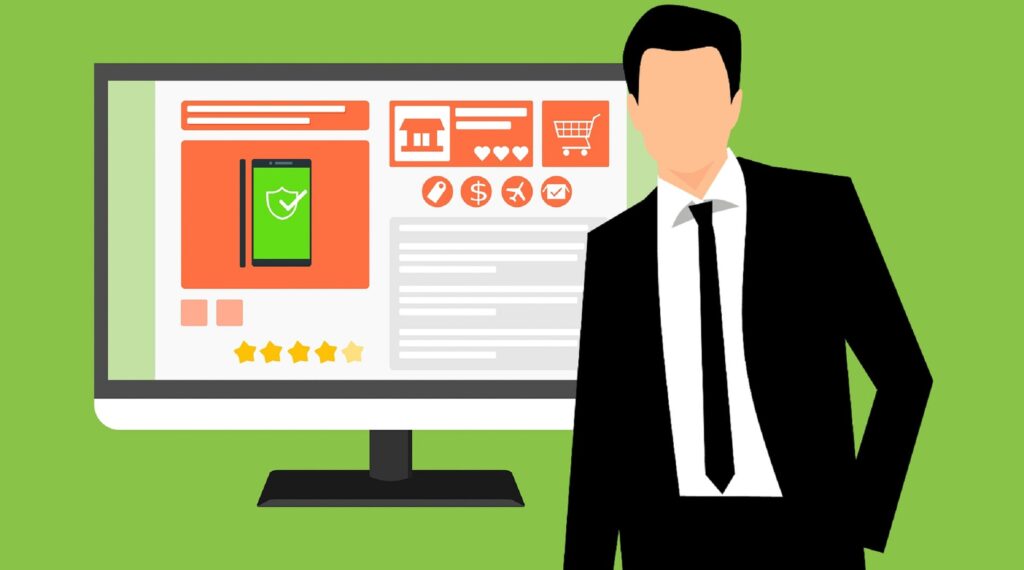The best way we can start the discussion about the changing role of the digital sales rep is by defining who is a digital salesperson. You can take your typical, conventional salesperson: Most people see a salesperson as someone who is relentlessly soft-soaping you to purchase a product or service from their company. Images of overbearing and pushy hair care products salesperson at your local dealership may arise in your mind. Now, suppose a salesperson fortified with tools and techniques of the 21st century, rendering more responsive and active than ever before. With the advent of the internet and the rise of companies relying on the internet, a new kind of salesperson has evolved, and that is none other than the digital salesperson.
What is the role of a digital salesperson?
A digital sales rep accomplishes the role of a conventional salesperson, utilizing online tools like social media and email to make a sale. They operate within the infrastructure of advanced contact centers where data-focused centralized processes such as performance management and quality control drive the sales strategy. They are responsible for utilizing different digital resources and channels to follow sales leads at the highest stage of the sales funnel. Necessarily, it is just the digital iteration of the traditional salesperson.
Read More: Marketing and Selling Tips for Retailers this Christmas
Let’s now look at the future of sales and how the domain has and will evolve. Read on!
The future of sales
Over the next ten years or so, how will sales evolve, how will the role of digital salesperson develop, what kind of new technologies will become commonplace, and so forth? Let’s dive in to know some of the answers!
1. Trust would be the key to clinching deals.
The need for trust in customer relationships would be high as ever. With the explosion of channels and the introduction of AI-driven CRM setups, the ability to establish and maintain trust could be easily missed and lost. According to the Executive General Manager of Partner Sales at Xero, David Bell, the sales team that harnesses the potential of data to include more value to relationships via data-driven marketing will also prove advantageous.
2. Salespeople would focus more on the experience of buyers to reduce sales cycles.
As per the 2021 Buyer Experience Study, 80% of SaaS shoppers report that the buying process is too overwhelming, involves too much paperwork, too many steps, and so on. Co-founder of COO, Mark Tanner, indicates that sales reps, in the future, will have to show empathy toward the buyer’s journey and do what’s possible to mitigate and address those challenges. He adds that all buyers face the same pressures and time constraints- vetting and purchasing a solution is just a part of their job. A sales rep can simplify the purchasing process by making it more convenient for the shopper and minimizing purchasing friction. To lower the friction regarding the areas of your existing sales process that are a bit complicated for the buyer to go through.
3. The hierarchical nature of sales will flatten.
The next five to ten years will see an upgrading of the hierarchical nature of sales companies. Stuart Blake, VP of Sales at Help Scout, says this has been transpiring for the last 5 to 10 years; however, “I hypothesize that it will speed up over the next five.” The chief reason why he predicts this is that as more people now are working from their homes, it results in more focus on the work output, cleaner communication, and leveraging of tech to receive that output.
4. Relationship building and meaningful interactions would be crucial for long-term success.
Judson Griffin, Senior Director of NORPAC Sales at Intercom, said the long-term trend would be about meaningful interaction, relationship building, problem-solving, and communication. Modern customers have higher expectations. Blogs, social media, and other content marketing platforms have made it smoother for buyers to inform themselves, so salespeople would need to develop into more a consultant to relish the success continuously. Organizations investing in tech and creating the culture that enables their teams in collaboration, problem-solving, and focusing on selling the product/ services to the right consumer goals would eventually be victorious.
Read More: Shipsy Announces its First ESOP Buyback
5. Each phase of the sales process would become more specialized.
According to the Managing Partner for LeadG2 and The Center for Sales Strategy, the future of sales entails more specialization for every phase of the sales process. He adds that the process would be pard down into a few parts, depending on what the company sells, with a single individual focusing on each phase. Marketers and lead generators will generate leads, account executives will perform discovery job presentations and manage and deal closures, and project managers will conduct pre-sale activities and research.
Whatever the future of sales, this profession has never been so exciting – By getting the experts to look at where sales have been and where it is all going, it is obvious that the prospect leaves a lot of room for education, innovation, and stand-out salespeople.





















